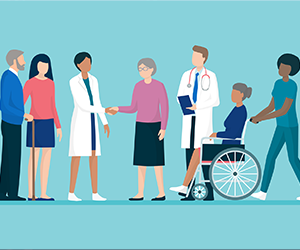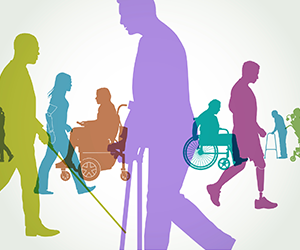Children, Youth and Families
Popular Courses

Culture & Behavioral Health
View Details

Decision-Making Options
Welcome to Decision-Making Options training, presented by the Colorado Department of Health Care Policy & Financing.
This course provides an overview of the legal and practical aspects surrounding decision-making options for individuals with disabilities. It specifically focuses on individuals with intellectual and developmental disabilities, who are more often placed under restrictive decision-making arrangements.
Whether you are a medical professional, behavioral health provider, or anyone involved in the care and support of individuals with disabilities, this course will equip you with the knowledge to understand and properly communicate the decision-making options available to individuals in the state of Colorado.
View Details

Diagnostic Considerations in Youth Mental Health
View Details

Diagnostic Over Shadowing
This course for behavioral health providers offers a deep dive into the unique needs of individuals with intellectual and developmental disabilities (I/DD), focusing on mitigating diagnostic overshadowing. Central to the course is an examination of diagnostic overshadowing; participants will explore its definition and multifaceted concerns. Participants will learn about the complexities that hinder accurate diagnoses and tailored interventions, such as gatekeeping tendencies and barriers to accessing healthcare. By exploring co-occurring diagnoses, we will analyze essential definitions and considerations that are crucial for accurate assessment and intervention planning, laying the groundwork for nuanced care provision.
Delving into assessment considerations will equip you with practical strategies for navigating the complex diagnostic landscape for individuals with I/DD. By the end of this course, you will have the knowledge and tools needed to navigate the complexities of I/DD care, reduce diagnostic overshadowing, and provide holistic, culturally sensitive support to individuals with I/DD, ultimately enhancing your capacity to deliver effective, person-centered care.
View Details

Digital Technology Tools: Considerations for Achieving the Colorado "North Stars"
View Details

Disability Cultural Competency for Behavioral Health Providers (DCCBH) | Full Enrollment
View Details

Disability Cultural Competency in Health Care (DCCHC) | Full Enrollment
View Details

Don't Go At It Alone - The Benefits of An Effective Team in Serving Persons with Complex Needs
View Details

Effective Interventions for Trauma in Children Aged 0-5
View Details
